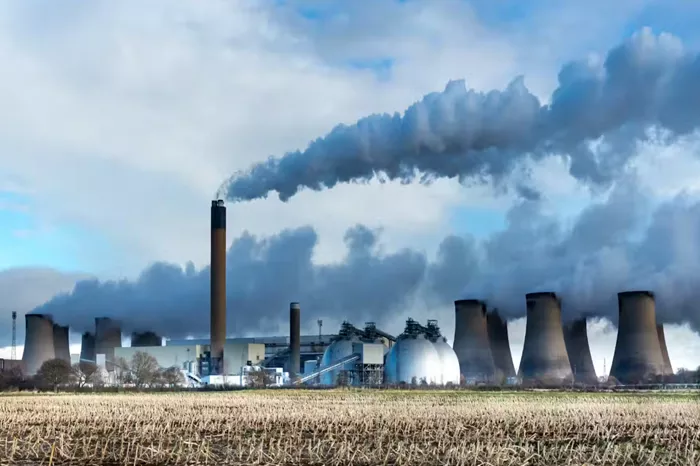Fossil fuels are natural substances formed over millions of years from the remains of plants, animals, and microorganisms buried deep within the Earth’s crust. These fuels—primarily coal, oil, and natural gas—are the backbone of modern industry and energy systems. Their formation, usage, and consequences on the environment are complex topics that have shaped human history and continue to influence the future of energy. This article delves into the origins, characteristics, benefits, and challenges of fossil fuels.
The Origin of Fossil Fuels
The story of fossil fuels begins millions of years ago. Plants, algae, and other organisms absorbed sunlight through photosynthesis, storing energy in their cells. When these organisms died, their remains accumulated in swamps, oceans, and forests. Over time, layers of sediment buried the organic material deeper into the Earth.
Under immense heat and pressure, the organic matter transformed into different types of fossil fuels. The type of fuel produced depended on the environment, the composition of the material, and the conditions it experienced. For instance:
Coal formed from dense plant material in swampy regions.
Oil originated from microscopic marine organisms like plankton.
Natural gas often formed alongside oil under even higher temperatures and pressures.
The process of fossil fuel formation took millions of years, making these resources non-renewable on a human timescale.
Types of Fossil Fuels
There are three main types of fossil fuels: coal, oil, and natural gas. Each has distinct characteristics and uses.
Coal
Coal is a black or brownish sedimentary rock rich in carbon. It is classified into four types based on carbon content and energy potential: lignite, sub-bituminous, bituminous, and anthracite.
Lignite: The youngest form, with the lowest carbon content and energy density.
Anthracite: The oldest and most carbon-rich form, producing the most energy when burned.
Coal was historically the first fossil fuel to power the Industrial Revolution. Today, it remains vital for electricity generation and steel production.
Oil
Oil, or crude oil, is a liquid hydrocarbon found in underground reservoirs. It is extracted through drilling and refined into various products such as gasoline, diesel, jet fuel, and petrochemicals.
Oil is essential for transportation, heating, and manufacturing. Its versatility and energy density make it one of the most valuable resources in the modern economy.
Natural Gas
Natural gas is primarily composed of methane, a light hydrocarbon. It is found in underground reservoirs, often alongside oil. Natural gas burns cleaner than coal or oil, making it a preferred fuel for power generation and residential heating.
Advances in technology, such as hydraulic fracturing (fracking), have increased natural gas production, making it a growing component of the global energy mix.
Global Importance of Fossil Fuels
Fossil fuels have been the cornerstone of modern civilization. They supply over 80% of the world’s energy needs. Here’s why they are so critical:
High Energy Density
Fossil fuels store large amounts of energy in small volumes. This makes them efficient and cost-effective for transportation, electricity generation, and industrial processes.
Reliability
Fossil fuels provide a stable and consistent energy source. Unlike renewable energy, which can be weather-dependent, fossil fuels can be burned on demand.
Economic Significance
The fossil fuel industry drives economic growth. It provides jobs, fuels global trade, and supports infrastructure development. Many nations rely on oil exports for their economies.
Challenges and Environmental Impact
While fossil fuels are indispensable, their use comes with significant drawbacks. Environmental concerns and resource limitations highlight the need for change.
Greenhouse Gas Emissions
Burning fossil fuels releases carbon dioxide (CO₂) and other greenhouse gases into the atmosphere. These gases trap heat, contributing to global warming and climate change.
Coal is the most carbon-intensive fuel, followed by oil and natural gas. This has prompted efforts to transition to cleaner energy sources.
Air Pollution
Fossil fuel combustion emits pollutants like sulfur dioxide, nitrogen oxides, and particulate matter. These substances cause respiratory problems, acid rain, and smog.
Resource Depletion
Fossil fuels are finite resources. As easily accessible reserves dwindle, extraction becomes more expensive and environmentally disruptive.
Water and Land Impacts
Oil spills, coal mining, and fracking can damage ecosystems. These activities often pollute water supplies and disrupt wildlife habitats.
Fossil Fuels and Climate Change
Climate change is one of the most pressing issues associated with fossil fuels. The Intergovernmental Panel on Climate Change (IPCC) has warned that limiting global warming to 1.5°C requires rapid reductions in fossil fuel use.
Carbon Capture and Storage (CCS)
To mitigate emissions, some industries are adopting CCS technology. This process captures CO₂ from power plants and stores it underground. While promising, CCS is costly and not yet widespread.
Transition to Renewable Energy
Solar, wind, and hydropower are gaining momentum as alternatives to fossil fuels. These sources produce no direct emissions and are sustainable. However, challenges like energy storage and grid integration remain.
Conclusion
Fossil fuels have shaped the modern world, powering industries, transportation, and daily life. However, their environmental and sustainability challenges cannot be ignored. Understanding the origins, benefits, and impacts of fossil fuels is essential for making informed energy decisions.
As the world faces the dual challenge of meeting energy demands and addressing climate change, the future of fossil fuels will depend on innovation, policy, and global collaboration. Transitioning to a sustainable energy future requires balancing the benefits of fossil fuels with their long-term consequences, ensuring energy security while protecting the planet.
Related topic:
What Is Oil Made Out Of Fossil Fuels?

